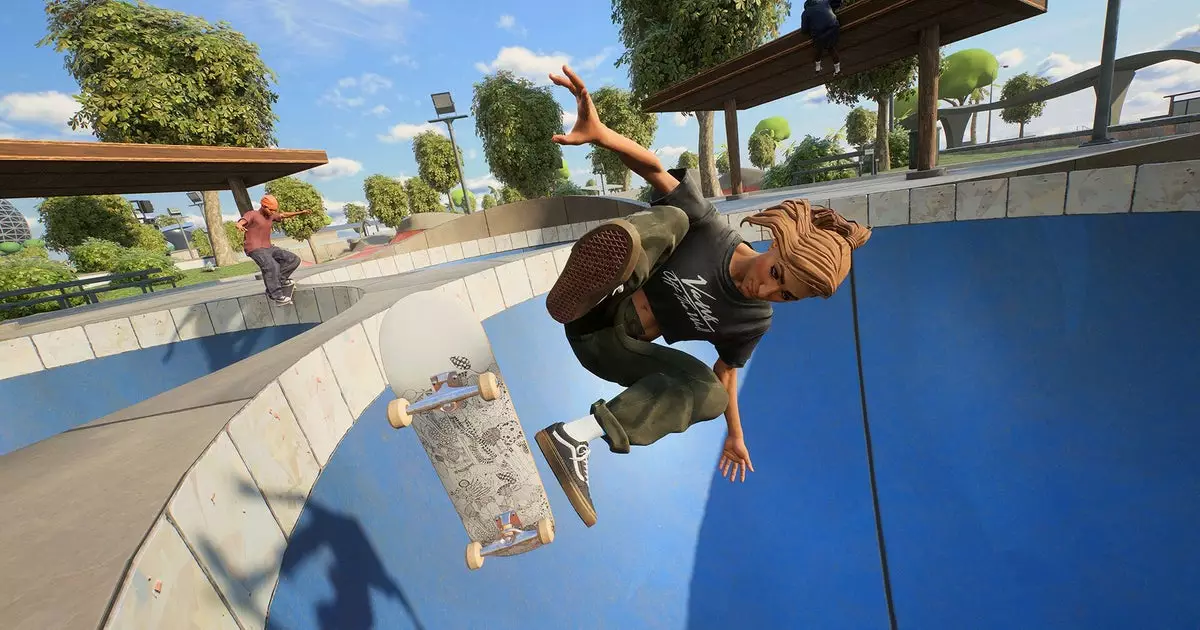As the landscape of video gaming shifts, certain franchises rise to the occasion, resonating deeply within the hearts of fans. One such series is Skate, often celebrated as a bastion of skateboarding video games. With Electronic Arts recently announcing the upcoming release of Skate (or Skate 4, as some affectionately term it), there’s palpable excitement rippling through the gaming community. Described as a physics-driven skateboarding simulator, this title promises a revitalization of the beloved series which last graced consoles over a decade ago with Skate 3.
The nostalgic vibes of skating enthusiasts are in full effect as they eagerly await the opportunity to razzle-dazzle with flips, spins, and tricks in a beautifully rendered open world. However, it’s essential to perceive this excitement with a discerning eye, especially as we weigh the impact of trends like free-to-play models in contemporary gaming.
Navigating Early Access and Community Engagement
The allure of early access, particularly with a game of this magnitude, creates a unique thrill. EA’s announcement of an Early Access period set for summer 2025 showcases their commitment to community engagement. By utilizing the “Skate Insider” program, they beckon participants to contribute feedback and share the playground of gameplay with a larger audience. However, this model raises important questions about the essence of player experience during such phases. There’s excitement in being among the first to skate the virtual streets of San Vansterdam, but how effectively will the beta phase gather meaningful insights to refine the final product?
Furthermore, the stipulations surrounding these early sign-ups, such as the non-disclosure agreements (NDAs), invite skepticism. While protecting development secrets is crucial, they can stifle the authentic conversations that arise in passionate gaming communities. Balancing the commercial interests of a major publisher with the genuine enthusiasm of players is a tightrope walk.
The Online-Only Controversy
Electronic Arts has also confirmed that Skate will operate as an online-only experience, which ignited discord among fans. Lingering concerns over server reliability and the potential for a fractured gaming experience echo previous disappointments stemming from similar decisions in other titles. The forthcoming online-only structure could jeopardize the timeless fun of casual skating if it depends heavily on an internet connection. Without a robust online framework, players could find themselves on shaky ground, much akin to attempting a complex trick on a poorly maintained board.
This push toward a predominantly online environment invariably leads to discussions about the integration of microtransactions in a free-to-play model. The omnipresent fear of pay-to-win mechanics creeps into the minds of purity-focused gamers who cherish early skateboarding games for their immersive and cohesive gameplay experience. Striking a balance between generating revenue and maintaining a fair play environment will ultimately determine the success of Skate in winning over both dedicated fans and newcomers.
Embracing the Competitive Edge
With the rise of newer skateboarding titles such as OlliOlli, Skater XL, and the anticipated narrative-driven Skate Story, the modern gaming landscape offers a diverse array of experiences that put players at the heart of the action. The innovation present in these games highlights the evolution of skating mechanics, while simultaneously serving as a reminder of Skate’s legacy. The competition in this niche market is fierce, and the upcoming installment must do more than simply replicate the vibes of its predecessors.
The skate community has witnessed a surge in creative gameplay experiences, with titles embracing imaginative storytelling intertwined with punk aesthetics and rhythm mechanics. The challenge for the new Skate is to integrate these fresh ideas while honoring its roots. Gamers aren’t merely looking for nostalgia; they crave innovation and a sense of community, which has driven the popularity of multiplayer experiences.
The Future of Skateboarding Games
As we gear up for the launch of Skate, it’s clear that there’s more at stake than merely flipping tricks. The realm of skateboarding in video games is on the brink of transformation, and tightrope expertise will be required to balance exciting gameplay with commercial realities. The informed opinions and sentiments of the gaming community will play a significant role in shaping this next chapter. Whether riders take to the virtual streets feeling triumphant or let down will depend largely on factors that extend far beyond just the game’s mechanics. With eager anticipation, we’re left wondering: can Skate carve out a new path while delivering the thrill that fans have longed for?

